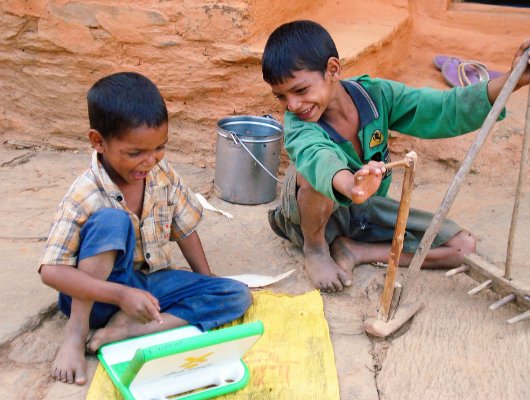Internet Access: Ending Extreme Poverty

3.9 billion people around the world do not have access to the Internet, a necessity most take for granted. Since the Internet has become a crucial part of daily life and a constant source of communication, what if the entire world were connected?
Usually, most people do not realize how essential technology and the Internet have impacted society until they really think about it.
What would people do without their iPhones at their beck and call? The world of technology has completely changed how society stays connected with one another.
Since global connectivity is essential, the United Nations have agreed to connect underdeveloped countries to the world of the Internet by 2020.
Supporters of the UN’s decision include the Bill & Melinda Gates Foundation, Bono and Facebook CEO Mark Zuckerberg.
During the UN’s September summit, Zuckerberg discussed how Internet access is the key to ending extreme poverty. “When communities are connected, we can lift them out of poverty,” he said. “We can and must do more,” said Zuckerberg.
Currently, the lowest levels of Internet access are found in sub-Saharan Africa, where Internet access is available to less than 2 percent of the populations in Guinea, Somalia, Burundi and Eritrea.
To do more, Zuckerberg and Facebook have created a free mobile application called Free Basics, launched in May 2015.
“This is a set of basic websites and services to introduce people to the value of the internet, and that we hope to add value to their lives. These websites are very simple and data-efficient, so operators can offer these for free in an economically sustainable way. Web sites do not pay to be included, and operators don’t charge developers for the data people use their services,” said Facebook in a statement.
With access to the Internet, there are vast possibilities when it comes to ending extreme poverty and improving the lives of those living in unfavorable conditions:
- Farmers in rural areas can plan for unpredictable weather and watch the prices of goods in the stock market.
- Families can receive money from relatives overseas.
- Parents could teach their children basic education.
Truly, the possibilities are endless.
With Internet accessibility, developing countries can finally be on the same playing field and understand the benefits of Internet access.
“We have a simple message,” Zuckerberg wrote. “By giving people access to the tools, knowledge and opportunities of the Internet, we can give a voice to the voiceless and power to the powerless.”
– Alexandra Korman
